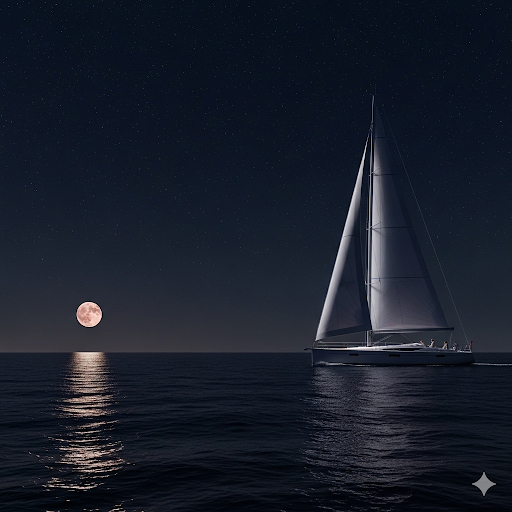
I missed the ‘blood moon’.
A startling sight, I imagine, in the Azores where light pollution is minimal. But when a friend from the UK messaged me next day to ask how it was for us here, I couldn’t say. Had I not spotted it through the kitchen window, where I usually watch the moonrise while washing up the dinner dishes, because the night was cloudy? Or did I forget, and go about my business stupidly unaware?
So I made a point of looking the evening after, and there she was, pink champagne-coloured, lofty but gracious, benevolent; that old-fashioned thing – a lady.
To be fair, my interior vision is often more alive to me – and I present to it – than my relationship with the landscape outside. My husband teases me: I can be driving out of our village, and, oblivious to both his car coming home and his frantic waving, pass him on the road – I promise, it’s not personal, darling!
But of course, the exterior world can be a vast metaphor for our – much smaller – individual state of mind. Recently, because if you’re an overthinker like me there’s always a lot to make sense of, I’ve been scanning both for connections.
I regard myself as fortunate to have what I can only think of as a random, undeserved ‘gift of faith’. Conscious of what an Australian poet, Les Murray (1938-2019), called ‘Presence’, not just in people, animals, and plants, but existing in her/his/their own self, I do not feel alone in the universe. I try to harness this to encourage my fellow earthlings who may be less certain we’re not just in some giant sinkhole.
Apart from world affairs, we can all be forgiven for our own or friends’ circumstances making us wonder, especially when situations, due to illness, poverty, and hard commitments seem inescapable. Rosy spectacles and an abundance mentality are laudably upbeat, but how well do we function in a power outage?
Apart from being very shortsighted, I am not visually impaired, and I know how dismayed I would be to be told I must live without sight. In actual, permanent, physical darkness. But despite that, and a moral bad press – ‘the dark side’, ‘the dark web’ – I venture to suggest that darkness as an environment is not always a negative.
It’s the place where we all begin, deep within a mother’s body. Birth and rebirth – I’ve Barbara Brown Taylor to thank for alerting me, in her book Learning to Walk in the Dark, that when Jesus rose from the dead (mind-stretching, perhaps, but a tenet of my ‘gift of faith’), it was inside the sealed tomb. According to the earliest accounts, there may have been angelic witnesses, but his human followers only saw him once he was outside, the stone rolled away. I never thought of it before.
And for each of us, when our turn comes, the simple fact of death. Whatever our spectrum of beliefs, nobody knows what happens after the house goes dark. There are mysteries, bookending our lives, we cannot comprehend.
Not to be gloomy, and unusually for a person of faith, I feel more comfortable with these uncertainties than great claims. It feels more respectful, both to the Divine and my travelling companions. How can I resolve the philosophical questions and theological discrepancies that have perplexed humankind, for however many thousands of years? Like Barbara Brown Taylor, I’m letting go my illusion of a ‘permanently safe place to settle’ and relaxing into navigating the unpredictable: ‘I will always be at sea, steering by stars.’
How beautiful is that? Granted, the trip may be poignant, because some surprises may run counter to our desires.
But the stars are there, and we can still look for them.
Well – the moon too.